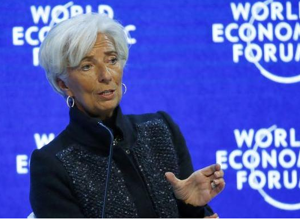Pubblicita'
Pubblicita'
- EUR/USD:1.04757-0.00700 (-0.66%)
- Natural Gas:3.19+0.118 (+3.84%)
- UK 100:8,190.75+76.65 (+0.94%)
- GBP/JPY:194.547-1.96600 (-1.00%)
- WTI Oil:70.421+1.09 (+1.57%)
- USD/JPY:154.528-0.75400 (-0.49%)
- S&P 500:5,948.71+31.60 (+0.53%)
- AUD/USD:0.65124+0.00004 (+0.01%)
- Silver:30.791-0.1345 (-0.43%)
- USD/CAD:1.39734+0.00046 (+0.03%)
- Corn:4.214-0.038 (-0.89%)
- EUR/USD:1.04757-0.00700 (-0.66%)
- Natural Gas:3.19+0.118 (+3.84%)
- UK 100:8,190.75+76.65 (+0.94%)
- GBP/JPY:194.547-1.96600 (-1.00%)
- WTI Oil:70.421+1.09 (+1.57%)
- USD/JPY:154.528-0.75400 (-0.49%)
- S&P 500:5,948.71+31.60 (+0.53%)
- AUD/USD:0.65124+0.00004 (+0.01%)
- Silver:30.791-0.1345 (-0.43%)
- USD/CAD:1.39734+0.00046 (+0.03%)
- Corn:4.214-0.038 (-0.89%)
Indicatore di ricerca:
Seleziona il Paese 
Australia PMI Industriale
Ultima pubblicazione
N/A
Attuale
N/A
Unità in
N/A
Precedente
N/A
Frequenza
N/A
Prossima pubblicazione
N/A
Orario di pubblicazione
N/A
PMI è un indice della direzione prevalente delle tendenze economiche nei settori manifatturiero e dei servizi. Consiste in un indice di diffusione che riassume se le condizioni di mercato, viste dai responsabili degli acquisti, si espandono, rimangono invariate o si contraggono. Lo scopo del PMI è quello di fornire informazioni sulle condizioni aziendali attuali e future all’organo decisionale, analisti e investitori aziendali.
Ultimi aggiornamenti
The Judo Bank Australia Manufacturing PMI was reported at 49.4 in November, from 47.3 in October, remaining in contraction for the 10th month, although the pace of decline softened to its slowest in six months. New orders continued to fall, contributing to weaker business activity, while manufacturing output extended its two-year streak of monthly declines. However, export orders saw a slight uptick, offering some relief to the sector. Input price pressures eased, with manufacturing cost inflation reaching its lowest level since June 2023. Firms reported reduced costs for materials such as grains and aluminum, while output price inflation also slowed, reflecting a softer pace of cost pass-through to customers. Despite the challenges, backlogs of work decreased at a faster rate, suggesting less strain on business capacity. This softer contraction in manufacturing activity was accompanied by slower job creation.

